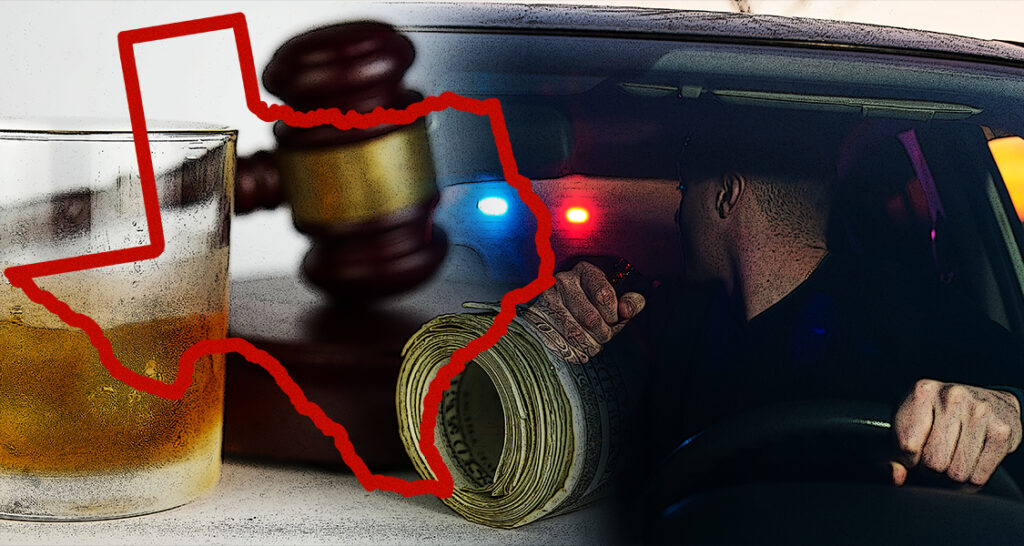
Penalties Impact a 2nd DWI in Texas
Most are aware of the penalties for a typical 2nd DWI conviction in Texas, including jail time, heavy fines, probation, and a criminal record. However, many aren’t aware of the aggravating factors of a 2nd DWI charge and don’t know how enhanced charges can impact common penalties. Here’s what you should know about the potential enhancements of a DWI and how they can impact the penalties for 2nd DWI in Texas.
How is a Typical 2nd DWI Classified?
A DWIs punishment is largely dictated by its classification. In Texas, non-enhanced DWI charges range from a Class B misdemeanor to a third-degree felony. A 2nd DWI is considered a Class A misdemeanor and carries 30 days to a year in jail, a maximum fine of $4,000, and up to two years probation. Unlike many states, Texas will always consider your prior DWI convictions during an arraignment regardless of how long it’s been between charges. Any prior intoxication charges can be used to escalate a DWIs classification in Texas, meaning those previously convicted of boating or flying while intoxicated can face penalties for a 2nd DWI.
When Will a 2nd DWI Charge Be Enhanced?
Depending on aggravating factors your charges or sentence can be enhanced for a 2nd DWI. Aggravating factors such as a blood alcohol concentration of .15% or over, an open container, a child passenger, or a crash resulting in injury or death will always result in enhanced penalties and can be used as solid evidence in the case against you.
- BAC ≥ .15% or Open Container:
While a DWI with an elevated BAC is classified as a Class A misdemeanor (the same as a 2nd DWI), reoffenders with a BAC of .15% or greater will face a sentence much harsher than what’s normally expected. With the NHTSA reporting that 55% of fatal DWI accidents in 2020 resulted from a BAC of .15% or higher, anticipate close to a year in jail, an extended period of probation, and a culmination of fines that can well exceed $4,000.
A DWI with an open container is not penalized as heavily as an elevated BAC, but still negatively impacts the mandatory minimum sentence you will receive for a 2nd DWI. Being caught with an open container can also tank most potential defense strategies as it is essentially equivalent to being caught red-handed.
- DWI With a Child Passenger:
If you are caught drinking and driving with a child under 15 in the car you will be charged with a state jail felony regardless of whether it’s your first offense. This can land you up to two years in jail, thousands of hours of community service and probation, a fine of $10,000, and the potential for child endangerment charges. Child endangerment charges can involve CPS and may result in loss of custody.
- Intoxicated Assault or Manslaughter:
A DWI resulting in injury or death is incredibly serious and will always lead to felony charges. Both intoxicated assault and manslaughter will face a minimum of two years in prison and a $10,000 fine, but the former faces a maximum of 10 years and the ladder 20 years.
To be eligible for probation, those convicted of intoxicated assault or manslaughter must spend a month or 120 days in jail respectively. If granted, probation can take up to ten years to complete and will require anywhere from 160 to 240 hours of community service (although service hours can reach as high as 600 to 800 hours).
Consult With a Specialized DWI Lawyer Today:
Regardless of the aggravating factors enhancing your penalty for a 2nd DWI in Texas, a specialized DWI lawyer can provide you with counsel. A DWI lawyer can formulate a defense based on the weak points in your case like the results of a breathalyzer or field sobriety test. Even in cases where the evidence is piled against you, a good DWI lawyer can work to negotiate a minimum sentence. Don’t be fooled, it is entirely possible to avoid a conviction with the help of a DWI lawyer specializing in reoffenses and enhanced charges





More Stories
Is Sansui an Indian Company? True Or Not
Handles Salary Revision and Appraisal: 10 Fact
Is Walmart an Indian Company? True Or Not